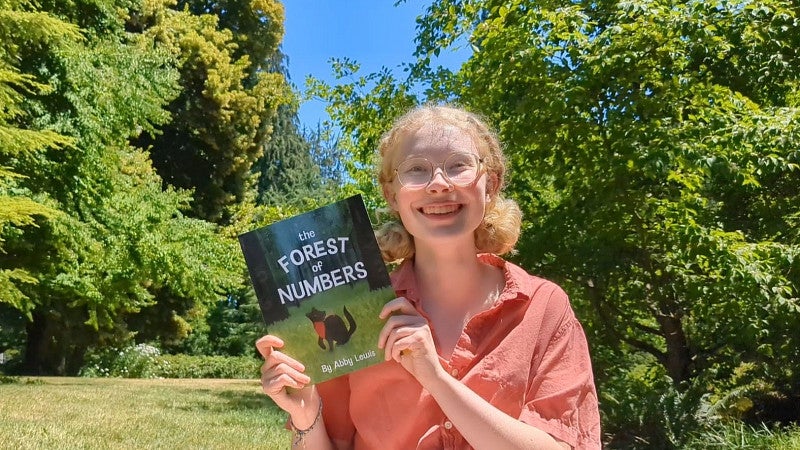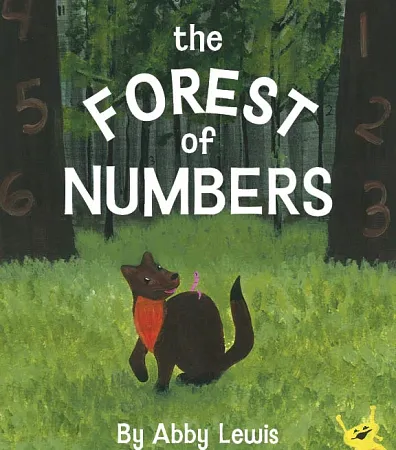
June 28, 2023 - 2:20pm
While in “Fundamentals of Abstract Algebra,” University of Oregon undergrad Abby Lewis was struggling with mathematical proofs.
The class was a departure from the math that she was used to, such as algebra and calculus, where you mostly plug numbers into equations. In this course, she had apply mathematical ideas creatively to find solutions.
“If I had gotten more education on proofs when I was younger, that would have made the transition a lot easier,” Lewis said. “When you get to college, if you are learning proofs, that can be overwhelming — it’s a whole mindset shift.”

Several months later, Lewis — who is double majoring in mathematics and cinema studies, both of which are in the College of Arts and Sciences, and minoring in music — published a children’s book titled The Forest of Numbers in early June that introduces elementary school-aged students to some mathematical concepts to try and take the scariness out of numbers.
A mathematical proof is a way to show that a concept is true or false. But it’s a subject that is usually taught in middle school and then glossed over until college, so Lewis wanted to write a book that could make it accessible for children.
“Proofs all rely on logic,” Lewis said. “It’s finding all of the pieces and putting them together and then being like, ‘Oh, this actually shows that this must be true, which is a very satisfying feeling.’”
Some of the mathematical ideas covered in the book include explaining what an even number is (that it can be divided by two) and exploring proofs by contradiction.
The book’s protagonists are Maisie, a Humboldt marten, which is an endangered species, and her best friend, Worm. Despite Maisie’s fear of numbers, she and her best friend, Worm, journey through the Forest of Numbers to see the ocean.
Lewis also illustrated The Forest of Numbers, a product of her artistic side that she wants to show readers that the arts and math can be connected.
“Bringing that art perspective into math is really important,” Lewis added. “A lot of people think that math is out of their reach, or just for ‘smart people.’”
Combining those two disciplines reflects Lewis’ academic journey. She entered the UO as a cinema studies major, but she kept taking more and more math classes during her first year — and she realized she loved the courses.
“I felt like I could offer more of a different perspective on math than I could on cinema studies,” she said. “I just got really sucked into it.”
Lewis grew up in an environment where she developed a passion for math. And with her book, she hopes she can not only introduce math concepts to readers but also show them that it’s not scary.
“Not everyone has that support, so I completely understand why it’s scary to people,” Lewis said. “But I don’t think it has to be.”
— By Henry Houston, College of Arts and Sciences
